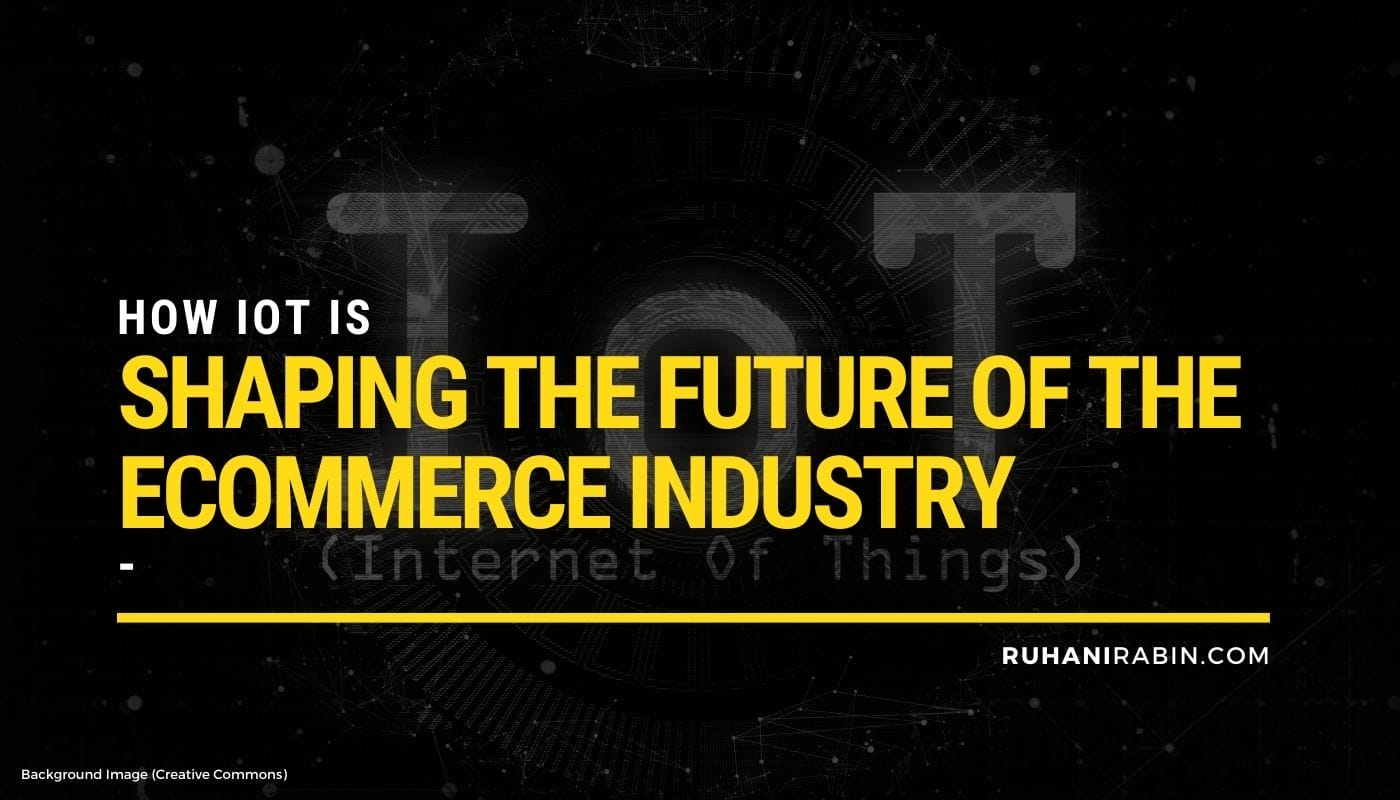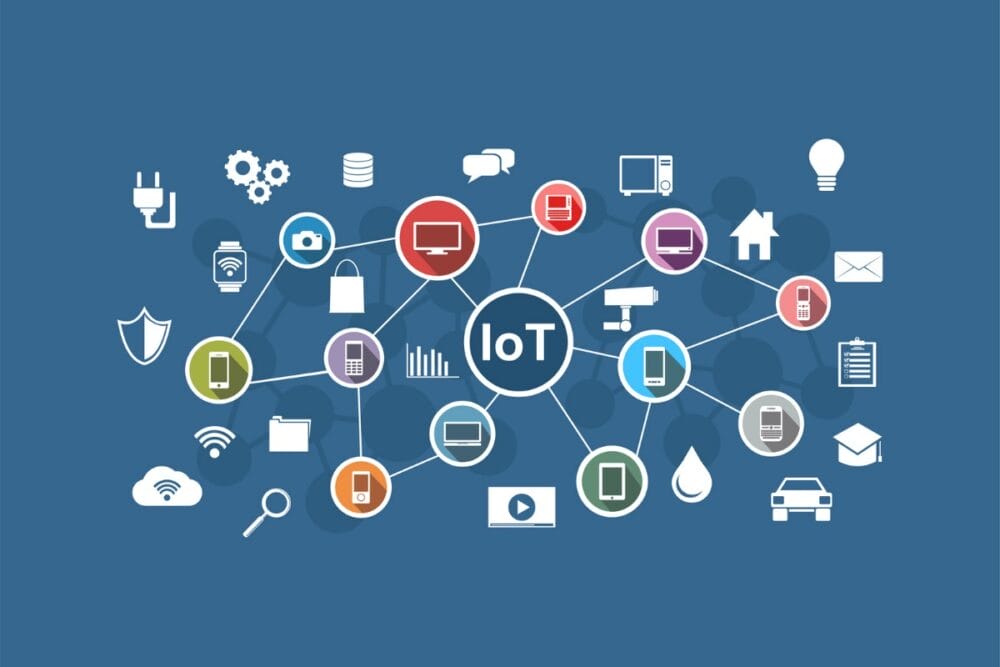How IoT is Shaping The Future of The Ecommerce Industry
The IoT development services create a digital footprint that links customers, processes, and things. This digital footprint has plenty of things to offer, such as personalized customer experience, greater revenue, and a transparent supply chain. Implementing IoT and Machine Learning, allows businesses to interact with customers in a more meaningful and engaging way. Thus, it gives you a better customer experience.

Suddenly, the technology world is growing and changing with the evolution of the Internet of Things. Due to the existing scenario of the pandemic, people have become dependent on the internet and its applications. The technology world is not only about connecting smart devices and computers, but it’s more than that. Many organizations use many devices in daily life to serve a great extent of consumers.
In the whole scenario, IoT has made its way into just about every industry. However, it has created a great impact on the eCommerce industry. The IoT development services have revolutionized eCommerce in many ways. It has been offering complete personalized and efficient services that continue to grow.
The IoT development services create a digital footprint that links customers, processes, and things. This digital footprint has plenty of things to offer, such as personalized customer experience, greater revenue, and a transparent supply chain. Implementing IoT and Machine Learning, allows businesses to interact with customers in a more meaningful and engaging way. Thus, it gives you a better customer experience.
Additionally, it can create an efficient shopping experience in custom mobile app development services when it comes to tracking real-time inventory.
Get the Best Updates on SaaS, Tech, and AI
The Impact of IoT in eCommerce Industry
As we know, the IoT is shaping how electronic devices, appliances, and many other things communicate with each other. All these things are connected with the help of the Internet. The IoT provides digital communication through specialized hardware and embedded software systems and also allows remote tasks to be performed.

As per the report, by 2021, IoT will have a great impact on the eCommerce industry and is set to hit $2.5 billion.
Furthermore, IoT will have an increased impact on technology in these ways:
- 68% increase in the eCommerce investment in machine learning and cognitive computing
- 57% increase in eCommerce investment in automation
Real-time Inventory
The primary benefit of implementing IoT is the transparency it creates for inventory and the online shopping experience. Customers can easily shop and view available products or inventory in real-time. Using IoT sensors and RFID tags, businesses can easily track inventory. As a result, there will not be any place for human errors. In this way, they can monitor their inventory and track with precision, which helps with reordering inventory.
In fact, without human intervention, IoT is shaping how businesses can store and access detailed information like product type, expiration dates, and other information. This allows products to be reordered through the use of smart shelves that automatically reorder products once inventory has reached a diminished level. This helps to eliminate the occurrence of low inventory or instances where a retailer may run out of stock.
Reduced Errors
IoT devices are more than connecting devices through the internet. They can track machine or product performance and identify loopholes or errors. This helps organizations to reduce the trial and errors and allow data regarding a device performance to be funneled to the right parties. IoT devices offer detailed information about errors, malfunctions, and allow any problems to be resolved quickly and accurately. This gives you a better customer experience.
Personalized Customer Service and Support
IoT-enabled devices can allow organizations to find out their customers through identity-based information and geographic location. These details make it much easier to personalize marketing to suit a specific customer. This enhanced customer experience will help you grow your business and customer engagement.
Moreover, IoT devices help retailers to create a more refined and personalized eCommerce experience for their customers. This helps you improve the revenue.
Better Cyber Security
Since there will be plenty of connected devices, there would be a place for cybercriminal activity. Each device has an access point, and many are left unprotected and vulnerable to experienced hackers.
But implementing IoT won’t be any bad news for cyber security. In fact, it may actually end up improving how the eCommerce industry is able to protect itself against digital threats.
Moreover, blockchain technology plays an important role as well. Having so many IoT devices exchanging communication, decentralized blockchain technology could end up enhancing security by offering a safer network.
However, any additional security layers that businesses can use will offer up a distinct advantage.
IoT is shaping the Smart Shelves
Physical retailers and brick-and-mortar stores have become aware of the concept of offering smart shelves features.
Smart shelves are connected with RFID tags that act as weight sensors and readers. This can help you sense the products and detect when products are removed from the shelves and placed in a shopping cart. It doesn’t only allow a swift or cost-effective shopping experience, but it can also help you prevent in-store theft. It enhances inventory strategies and gives you insight into business stores.
Automation, Cognitive Computing, and Machine Learning
With the utilization of analytics and other predictive tools, Machine learning and cognitive computing offer a personalized eCommerce customer experience. These tools also help you manage inventory demand and predictability.
Furthermore, automation helps you improve customer management by creating an efficient shipping process as well as tracks in-store inventory. Moreover, it also helps customers find their suitable products or what they are looking for with real-time inventory. The IoT all encompasses three of the elements.
The combination of machine learning and cognitive computing helps to create a more refined experience for the customer. Moreover, with automation, you can have accurate information regarding inventory.
Generally, the impact of IoT is shaping so far inside the eCommerce industry. It allows the eCommerce industry to track and monitor the whole experience from the time of customer engagement to the shipment of products.
IoT devices allow retailers to anticipate the condition of the product as well. The IoT helps:
- Creates a seamless and efficient eCommerce experience
- Refine and personalize the customer experience
- Provide detailed information regarding the condition of product and machinery
- Allow product delivery to be tracked and monitored with real-time information
Improvements in Maintenance and Warranties
In the eCommerce industry, maintenance, warranty, and complicated products are always major concerns. If you are not careful, you can end up losing plenty of money and wasted time on customer service.
Therefore, IoT development services play an important role. It fetches the data of customers. Through this data, you can analyze the behavior of your products, and perform advanced diagnostics. Furthermore, you can also remind your customers about upcoming scheduled maintenance and walk them through basic maintenance remotely.
This results in offering cost-effective solutions. Therefore, many companies are on the path of improving their warranties and offering unique selling points for their customers.
Wrapping Up
With the help of an eCommerce development company, IoT is projected to gain popularity in the world of eCommerce. There are many benefits that eCommerce retailers can leverage to improve the overall customer experience and business functionality.
In fact, around 70% of retailers are interested in employing the IoT to enhance conversions and better serve their customers.
So, we can conclude that IoT will have a significant impact on eCommerce and retail. By focusing on IoT development services and leveraging the latest trends, businesses of all shapes and sizes will find incredible opportunities.
Kiran Beladiya is the co-founder of the web design company named The One Technologies. He is managing everything from discussing project ideas with clients to their release. Due to the hectic schedule, he could not get enough time to nurture and sharpen his writing skills but he is an avid writer.
FTC Disclosure: The pages you visit may have external affiliate links that may result in me getting a commission if you decide to buy the mentioned product. It gives a little encouragement to a smaller content creator like myself.


